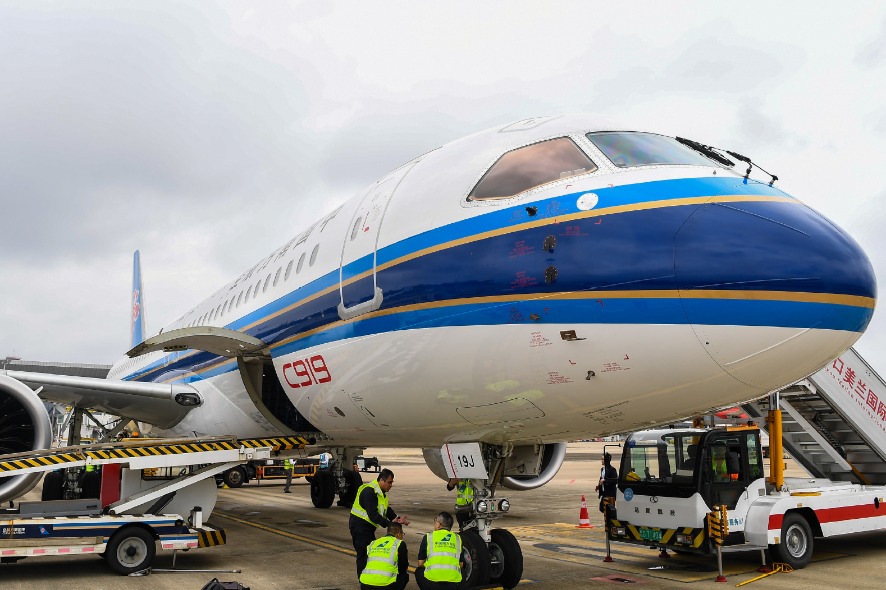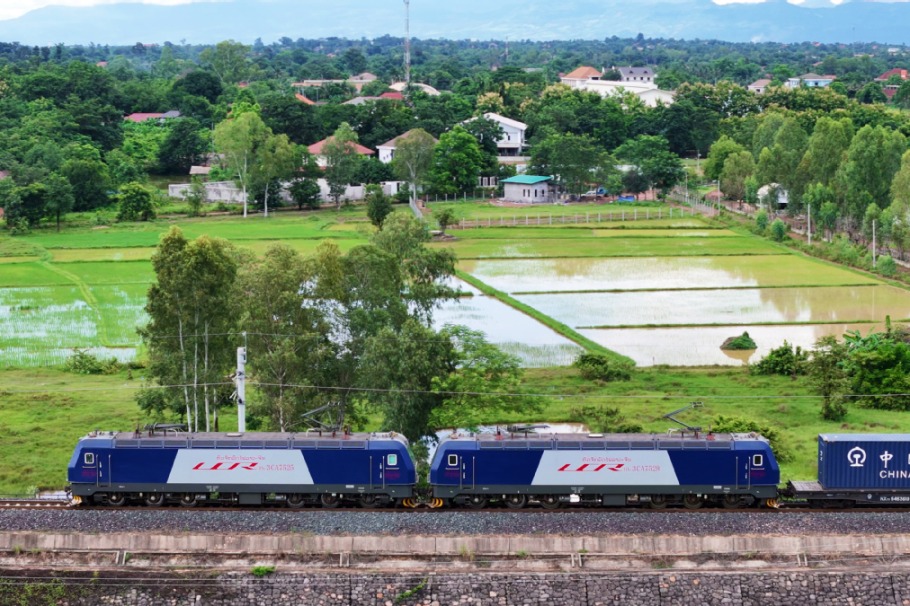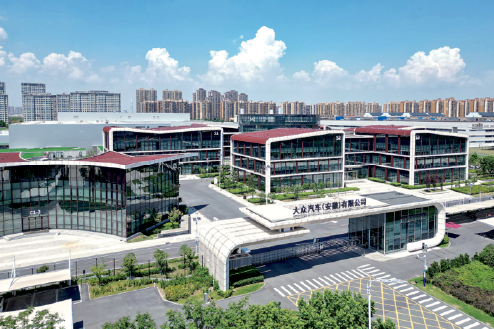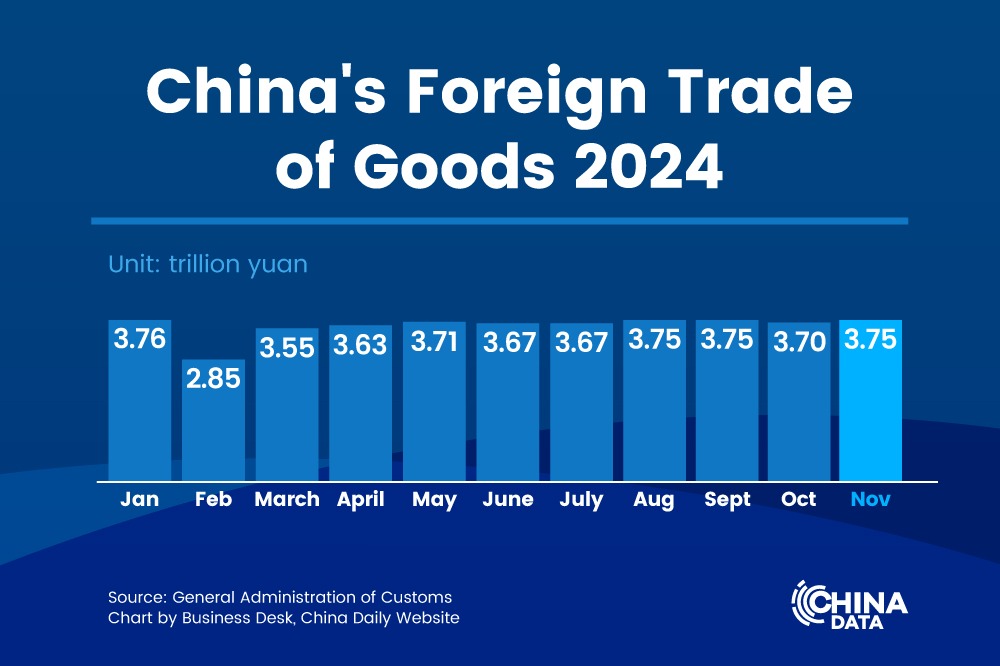Canon and China closely connected


Company cites support from government as key factor for sustained business growth
Editor's Note: This year marks the 40th anniversary of China's reform and opening-up. China Daily interviewed top executives of well-known multinational companies for their views on the country's socioeconomic development.
Please use three words to describe China's changes in the past 40 years.
Earth-shaking, leapfrog and touching.
What are the biggest achievements in China since the introduction of the reform and opening-up policy 40 years ago?
Compared with 1981, when I first came to China, the country is totally different now. I started to work in Beijing in 2005, and in the past 40 years, China has been continuously improving. I have seen that most clearly in terms of economic development, as Chinese people's living standards are gradually improving and their lives are becoming richer.
How has your company benefited from the country's reform and opening-up policy?
Canon and China have been closely connected with each other since the country began to implement the reform and opening-up policy. In 1979, Deng Yingchao, the wife of former premier Zhou Enlai, came to the Canon headquarters to meet our boss.
Our business in China includes production, research and development, and sales, which are very important segments in the whole value chain.
In the past 40 years of China's reform and opening-up, Canon has continually grown in China. For example, we set up a joint venture in cooperation with Peking University to carry out software R&D in 1988. Then, we established Canon Information Technology (Beijing) Co Ltd, which still exists and is involved in the expansion of R&D work.
In 1989, Canon set up factories in Dalian in Northeast China's Liaoning province and Zhuhai in South China's Guangdong province in 1990. Since then we have expanded our production in China. At present, Canon has five production bases across the nation.
At first, the Chinese authorities offered tax exemption policies. Thanks to mutual benefits, we soon took root in China, and the five production bases have been operating well since then.
Canon (China) Co Ltd, which was established in 1997, is a sales company in China. Due to the policy limitations at that time, we hadn't really carried out any sales activities for seven years since the company was established.
In 2004, we secured the right to directly import and sell foreign products, and then we embarked on a series of marketing activities.
Our business in China has been growing steadily every year. Moreover, consumers' awareness and perception of Canon have been improving. In terms of specific product lines, our digital cameras and inkjet printers have maintained the largest market share in China for several consecutive years.
Currently, Canon has about 1,600 employees in China. If we include all of our factories and associated companies on the Chinese mainland, we have more than 20,000 employees. It is a pleasure to work with them, as they are all very excellent.
We are grateful for the strong policy support from the Chinese government.
Has competition intensified between your company and Chinese companies?
In the past 20 years, we have witnessed the rapid growth of many Chinese local companies. They are strong competitors, not only for Canon, but also for other enterprises from European countries and the United States.
We are delighted to see their growth, such as Alibaba, Suning, Gome, Tencent and other e-commerce platforms or internet companies, because they will become our clients and important partners in a lot of business ventures in the future.
Looking back over past four decades, especially in the early years, Japanese, European and US enterprises had great advantages in terms of technology. It was in that early stage that we came to China and provided many Chinese enterprises with technical assistance and support. However, the situation is now reversed, as many Chinese enterprises have mastered the most advanced technology, especially after the rise of internet enterprises.
Instead, Japanese, European and US enterprises can now learn from Chinese enterprises. We feel that we can learn a lot from China's emerging companies. For example, mobile payments, such as WeChat Pay and Alipay, are very common in China, while payment methods are less developed in Japan.
How do you view China's role in the world today?
China has undoubtedly developed into a global economic power. Now that it has become such a powerful country and holds a significant global role, it takes responsibility not only for Chinese nationals, but also the whole world.
It can be seen from projects like the Belt and Road Initiative that the Chinese government considers not only its own nationals, but also the people of the world in terms of actions and words. It is also a responsibility being a world power.
Thirty or 40 years ago, China was like a sleeping market and no one had activated it, so we generally thought Japan, the US and Europe were the center of the world. However, since I came to Beijing in 2005, the changes have been very big. The Chinese market has been increasingly active, and has gradually become one of the most important markets around the world.
Such a market is also a top priority for Canon.
What is the most unforgettable experience you have had in China?
The 2008 Beijing Olympic Games, the 2010 Shanghai World Expo, and the Canon expos in 2011 and 2016 in Shanghai all left deep impressions on me.
Big sports events attract the media from all over the world. Whether they are photographers or journalists, we can see them in the stadium or in the news center. As most of their equipment is Canon, we set up an on-the-ground Canon professional service center, with professional staff to provide services, such as loaning cameras and lenses, as well as offering repair and maintenance.
Meanwhile, the presence of many professional photographers is a good opportunity for marketing, and we took advantage of this opportunity to do a lot of promotions, advertising and other activities.
However, if I go back to Japan one day and someone asks me that question again, I would say the people around me impressed me significantly, no matter whether they are dealers or our own employees. They are very friendly and easy-going. The most memorable experience is to work with them.




































